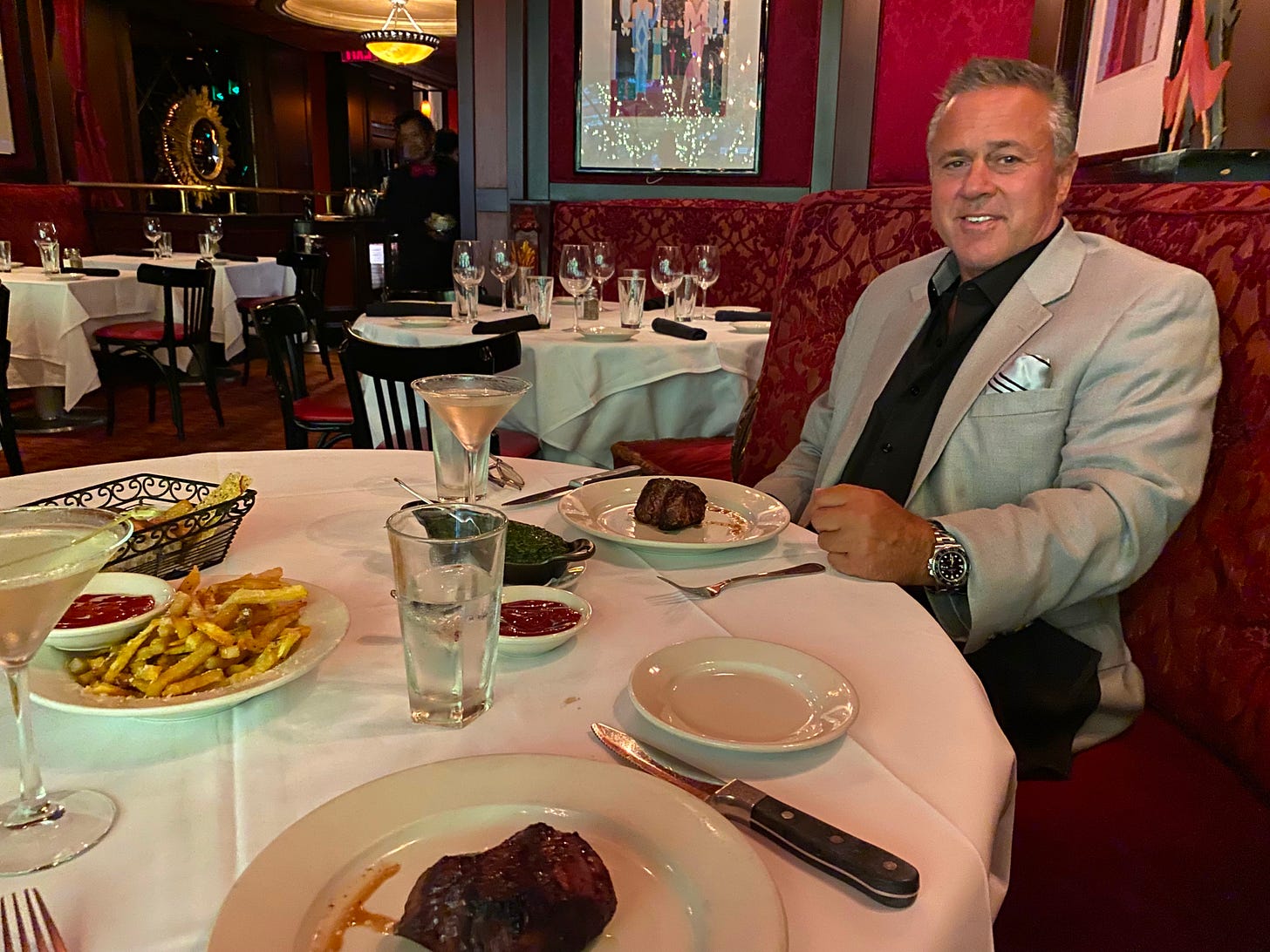Inspired by Jon Ronson’s excellent new Substack on non-fiction storytelling, I thought I would answer the big question I get asked all the time.
Where do you get your stories from?
All stories begin as a whisp of something that will turn into a series of questions you feel compelled to answer, questions that will take you on a hyperlinked odyssey through Google and Wikipedia and end in an article, programme, podcast or book.
The whisps come to you if you go around with your eyes and ears open, reading a lot, watching thought-provoking things, listening to radio and podcasts and audiobooks and conversations that will spark your brain. They should be written down quickly, before they evaporate.
What form do those whisps take?
Sometimes it’s a line or detail buried in someone else’s story, which the author has missed, or chosen not to focus on.
In 2016, I saw a tiny article far down on the BBC News Website about the Campaign Against Sex Robots. It was an interview with an academic who was trying to get AI-enabled sex dolls banned in the UK. Surely, I thought, the story was that there were people trying to make sex robots, as well as customers who wanted to buy them, as much as the campaign against them. Who are these people, I wondered, and where can I meet them?
Those questions led to what became my first book, Sex Robots & Vegan Meat.
Sometimes the whisp comes in the form a tiny remark someone makes without realising how massive it might be.
This could be a tweet, or an off-hand comment left beneath an article, or even someone making small talk with you.
I got the idea for my second book, The Price of Life, when I was about to go on set for the Sky News Press Preview, and Mark Wallace and I were chatting while we waited in the wings. I told him I was working on a story about effective altruism, and how philanthropists were routinely putting prices on human lives to see which were the most cost-effective to save. Mark used to work at the Tax Payer’s Alliance, and he told me the Home Office regularly calculates the cost of different crimes to society - from murder to rape to arson - to work out how to allocate resources.
Who else was prepared to put prices on human lives, and why? How did they come up with their numbers? Pursuing answers to those questions sent me around the world for the next two years, including to a New York steak restaurant, where I had dinner with a hit man.
Sometimes the whisp is a connection you’ve noticed between other stories.
The first podcast I ever made was about Jan Karbaat, a Dutch fertility doctor who used his own sperm to father around 100 babies in the 1970s and 1980s, without his patients’ knowledge or consent. Those babies - now very angry adults - discovered the scandal after they were all connected to one another through at-home DNA tests like Ancestry, MyHeritage and 23andMe.
Soon after I made it, I was in touch with Vanner and Donna Johnson, who discovered that the IVF clinic where they’d conceived their youngest son had made a mistake and used the wrong man’s sperm. They only found out when the family took 23andMe tests, for fun.
I began to realise that at-home DNA tests were unearthing a huge number of secrets, mistakes and crimes once considered forever buried. What other stories were coming to light because we now give each other DNA test kits for Christmas? Those questions turned into The Gift, my documentary series for BBC Radio 4.
Sometimes the story comes to you.
I am lucky - and very grateful - that people bring me stories. The first episode of Season Two of The Gift began with a message a woman in her eighties sent me through the contact form on my website. Some of the most remarkable tales I have ever told have come to me this way, like this one, and this one.
It’s a huge responsibility to be trusted with a personal story no one has told before. I take these ones especially seriously.
I truly cannot wait to share Season Two of The Gift with you. My producer Conor Garrett and I are particularly excited about the stories we’ll be bringing to you this time. It’s launching in November - just in time for Christmas.
Things that have caught my eyes and ears:
Spent a day totally absorbed in Absolutely and Forever, a gem of a book by Rose Tremain, about first loves and first times and acceptance and so much more. It was over too soon; as soon as I finished it, I wanted to read it all over again
Am very much enjoying travelling deep down the conspiracy rabbit hole with Gabriel Gatehouse in the second series of The Coming Storm
Quite liked Light into Life, Marc Quinn’s exhibition at Kew, but not as much as I have enjoyed other things by Marc Quinn, or other art exhibitions at Kew
Was intrigued to stumble upon this piece in Rest of World, which tells the story of a libertarian ‘start-up city’ built by Silicon Valley billionaires on the Honduran Bay Island of Roatan. It’s three years old and needs a follow up. Now there’s the whisp of an idea…
If you’re enjoying The Little Red Notebook, do forward it on to other people you think might like it too.






Really enjoyed The Gift, very happy to see there is a second season coming!